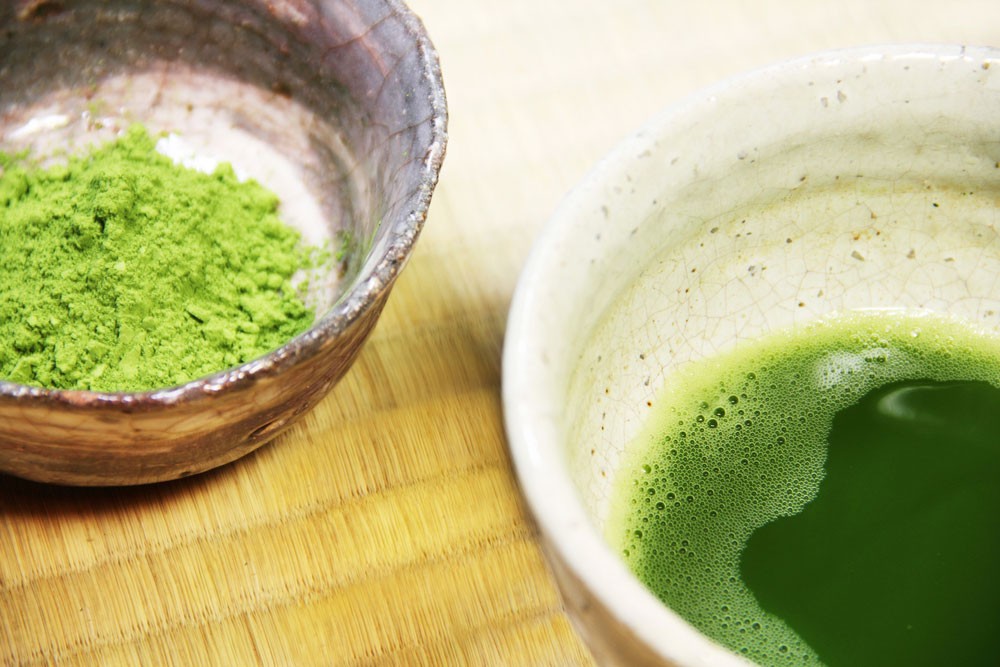A green tea that’s been enjoyed in Japan and China for hundreds of years, matcha contains a concentrated amount of catechins or plant compounds in tea that act as natural antioxidants which may prevent cell damage and chronic diseases. In fact, one study suggests that the number of certain catechins available by drinking matcha is up to 137 times greater than in other types of green tea.
The tea leaves are made into a powder far stronger than regular tea, and so a little can go a long way. When you add matcha powder to hot water, the resulting tea contains all the nutrients of the entire leaf and packs in a more concentrated amount of antioxidants and beneficial plant compounds than regular green tea. Today, no one argues with the fact that the best Matcha comes from Japan.
All teas come from the Camellia sinensis plant, but the varieties are differentiated by geography and growing, harvesting, and processing methods. Matcha is distinguished from regular green tea by being a “tencha” leaf, meaning it is shade-grown.
Today, matcha is widely available in different grades. In Japan, ceremonial-grade matcha is reserved for tea while the cheaper, culinary-grade matcha usually harvested from autumn harvests is used for mixing into food items or skincare products.
The most important things to know about matcha before buying it are:
True, authentic Japanese matcha should, of course, be from Japan, as well as be made purely from tencha leaves, shade-grown, and stone-ground. Carefully read the package’s labels.
The brighter green matcha powder is, the better its quality and taste. Higher quality tea will taste sweeter and smoother while poor quality matcha has an astringent smell and taste.
Once you open the bag, the matcha becomes exposed to air, light, and possibly humidity, so it should be consumed within a couple of weeks.
Matcha should be stored in a dark and airtight bag or container.
Culinary grade matcha is best used in cooking and baking where other ingredients can tame its bitterness.
Bad quality matcha will taste and smell astringent.
So, why is matcha more than just a cup of tea?
Naturally healthy matcha, rich in fiber, chlorophyll, and vitamins is loaded with health and beauty benefits:
Contains 137 times more catechins than other types of green tea which can counteract the effects of free radicals from chemicals, pollution, radiation, and UV rays for example.
Provides vitamin C, selenium, chromium, zinc, and magnesium
Lowers cholesterol, protects against heart disease, and supports liver health: Studies show that green tea may act protectively against cardiovascular disease and disorders of the liver.
Lowers blood pressure: Catechins seem to be especially helpful in lowering blood pressure when your upper blood pressure number is 130 or above.
Is associated with lower levels of glucose: A study demonstrated that the frequency of green tea consumption among middle-aged Japanese women and men was inversely associated with the risk of type 2 diabetes.
Burns calories and boosts metabolism: “A study featured in the American Journal of Clinical Nutrition found that drinking matcha tea can the body’s rate of burning calories from a normal 8%-10% of daily energy expenditure, to between 35% and 43% of daily energy expenditure.” -matchasource.com
Calms the mind and relaxes the body: Matcha is rich in L-Theanine, an amino acid that promotes a state of relaxation and well-being by creating alpha brain waves, which lead to a state of relaxed alertness. And while L-Theanine is common in all tea, matcha may contain up to five times more of this amino acid than common black and green teas.
Can help keep you awake and focused when you need to be due to the caffeine it contains: In Matcha, the jittery and speedy heart rate effects of caffeine is counteracted by L-Theanine which promotes relaxation and lowers the heart rate. Just don’t overdo it.
You don’t need to only drink it to benefit from its high nutritional content, you can even add it to your drinks, smoothies, main dishes, and desserts. A host of recipes can be found online, and you can effortlessly incorporate matcha into your diet.
Matcha tea offers a variety of health benefits. This elevating tea experience is a wonderful way to add powerful health benefits to your everyday life.

